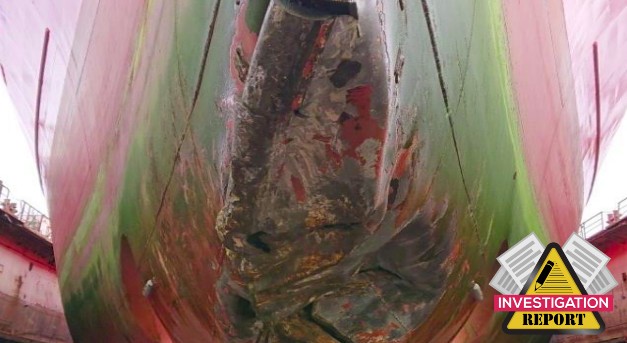Transport Malta issued an investigation report on the grounding of the oil/chemical tanker MT KEY FIGHTER while underway in July 2020. The investigation revealed that the grounding was caused by the vessel’s deviation from the planned route because of loss of directional control.
The incident
On 01 July 2020 at 2130, whilst on passage from Myre to Røst in Norway, the motor vessel Key Fighter suffered loss of directional control and ran aground, South of Røstlandet.
While there were neither injuries nor pollution reported, the vessel sustained extensive material damage and ruptured its hull.
[smlsubform prepend=”GET THE SAFETY4SEA IN YOUR INBOX!” showname=false emailtxt=”” emailholder=”Enter your email address” showsubmit=true submittxt=”Submit” jsthanks=false thankyou=”Thank you for subscribing to our mailing list”]
A few hours later, with the assistance of a tow, the vessel was refloated. Key Fighter then proceeded under its own propulsion power to Røst, where it was safely berthed.
Conclusions
Taking account of the technical reports, the vessel management’s subsequent findings and given the proximity of navigational controls relative to the operator console position, it appeared probable to the MSIU that the unintended port rudder movement may have been caused by an inadvertent physical contact with the wheel; overriding the joystick control function and invalidating,
…the report reads.
- The grounding was caused by the vessel’s deviation from the planned route because of loss of directional control;
- The spring for preventing activation of microswitches on starboard side in the steering wheel unit was found to be defective;
- It is likely that the unintended rudder movement to port may have been caused by an inadvertent physical contact of the steering wheel, overriding the joystick function and the master’s starboard helm command;
- Activation of the steering wheel disables joystick and autopilot function, and one steering gear pump;
- The steering wheel had no protective or locking features to prevent unintended or accidental movement of the wheel.
- The master did not have time to analyze the source of inappropriate rudder response;
- The master’s subsequent actions to avert the dangerous situation could not stop the vessel from running aground;
- Fatigue and alcohol were not considered to be a contributing factor to this accident.
Actions taken
During the safety investigation, the company took the following actions:
- the steering gear system, including electronics and hydraulics, were inspected by service engineers and the worn-out parts were replaced;
- management standing orders were amended to include instructions to masters on ports offering no pilotage service;
- agreed that the navigational procedures are reviewed and a new procedure on navigation in confined waters is issued;
- navigational watch manning levels to be revised and include a helmsman in watch condition no. 210;
- masters were required to attend a Bridge Resource Management course and simulation training.




























































